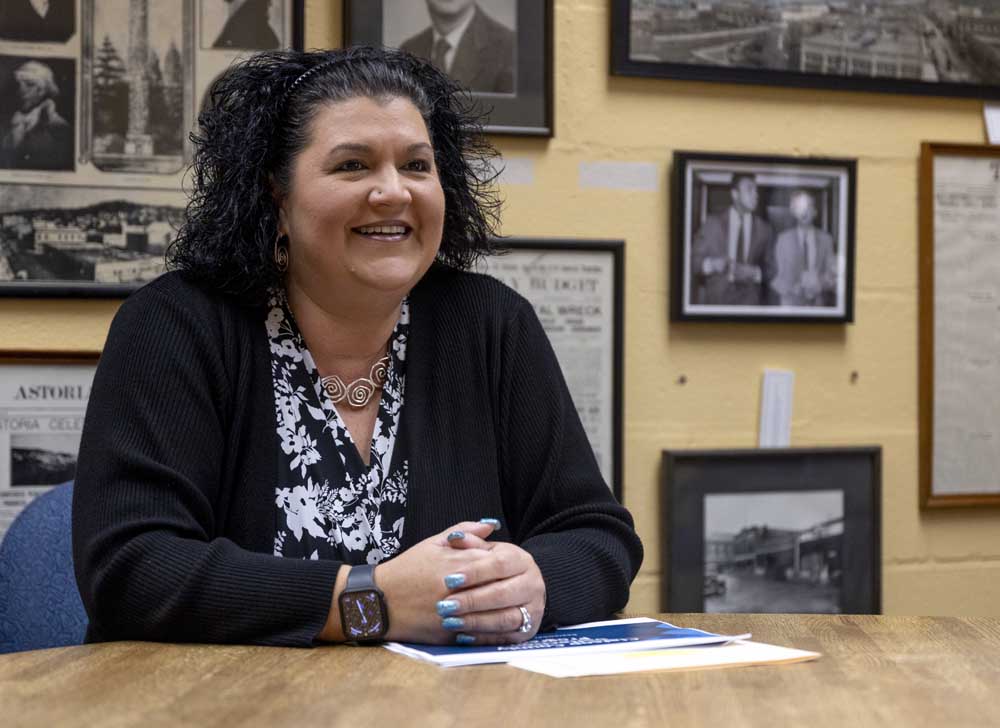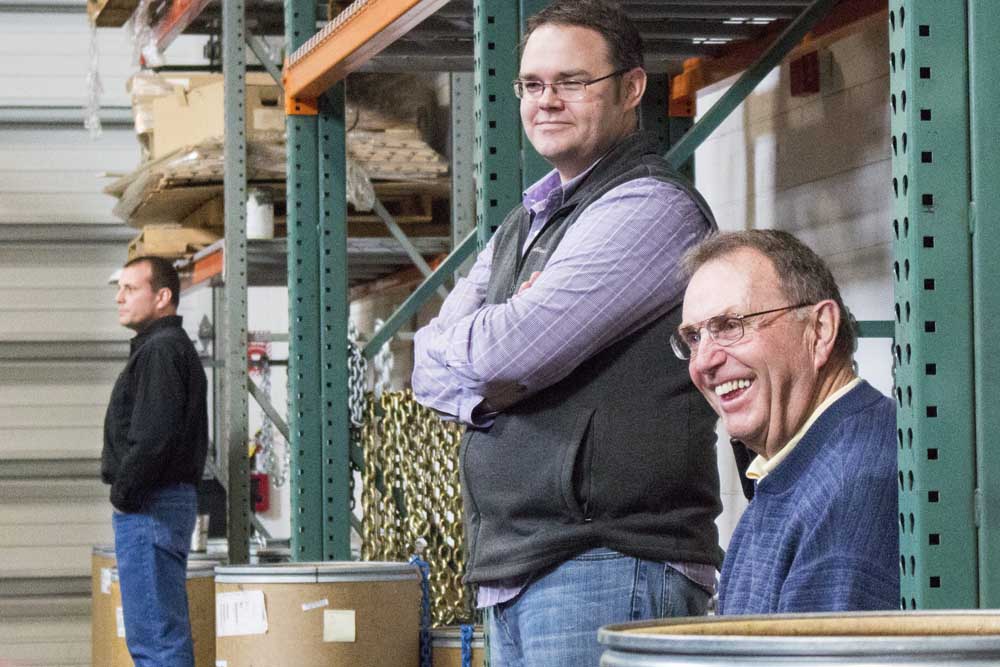Behind the News: ‘We are going to measure success individual to each client’
Published 12:30 am Tuesday, October 29, 2024

- Christina Schulz is the Clatsop County deflection coordinator.
Clatsop County has turned to someone with experience in law enforcement, including work as a patrol officer, as the deflection coordinator.
Trending
Christina Schulz oversees the county’s program to divert people caught with small amounts of illicit drugs into treatment instead of court.
Clatsop County is among the counties that chose to set up a deflection program under a state law this year that rolled back Measure 110. The ballot measure, approved by voters in 2020, decriminalized possession of small amounts of illicit drugs.
The rollback came after state lawmakers, law enforcement and many behavioral health leaders concluded that Measure 110 was poorly timed and executed and may have contributed to Oregon’s fentanyl-fueled drug crisis.
Trending
Deflection programs give people facing drug possession charges the option of taking a treatment path.
“We are going to measure success individual to each client,” Schulz said. “Success is going to be, are we getting these folks unhoused to housing? Are we getting them from unemployment to employment? Are we getting them established back into the community?”
Rob Schulz, Schulz’s husband, a former Cannon Beach police officer, was named the police chief in Cannon Beach earlier this year. The couple had been working together at the Black Butte Ranch Police Department in Deschutes County.
In an interview, Schulz talked about launching the deflection program.
Q: Under the state law recriminalizing possession of small amounts of illicit drugs, county deflection programs are optional. Why did Clatsop County believe it was important to establish a deflection program?
A: I believe that Clatsop County was wanting to get this deflection program going just to counteract Measure 110 and the damage that it created for all the folks that are now using and highly addicted, and just for the calls of service that these officers are having to respond to.
So I feel that it’s an opportunity that now we can get these folks some help, because, back in the day, all you had as your options were to cite, take them to jail, put them in prison, and now we have avenues to get these folks the help that they need to get clean and things like that.
Q: What are your first impressions about the county’s deflection program since the new law took effect in September?
A: I think that Clatsop County has a fantastic program developed. It really goes out to the key, core deflection team that started back in March, that created the program for Clatsop County.
Just having all key players sitting at the table and really having open communication on how to develop this program and how to make it successful. At this point, it started Sept. 1, and as we speak we have two highly engaged clients in the deflection program.
So we are seeing a pattern that Oregon is off to a slow start with the deflection program, and I do believe that’s just due to the lack of training that we need to get out to all the different agencies and to the police officers.
So myself and Clatsop Behavioral Health is doing that. We are actively going around to each police agency and training all the officers on the deflection program and what it looks like and how we’re going to make it successful in Clatsop County and hope to be the poster child for the program.
Q: The county’s deflection program involves multiple agencies, including Clatsop Behavioral Healthcare, local police departments, the sheriff’s office and the district attorney’s office. What is your role in facilitating communication between these different agencies and developing training for those involved?
A: I pretty much came into the role in August. They had to get the program developed, and then to hire the coordinator. And then the coordinator — my role — is to pretty much run the program, but also to facilitate all the training to all the different agencies.
When I came into it, I created a PowerPoint for not only the law enforcement agencies, but I created a PowerPoint for the general public that I’ll be going out and talking and teaching. So going out to Rotary and Kiwanis and chamber of commerce events, senior centers, anywhere we can get this information out onto the street so people can talk about.
Q: How will the county measure success?
A: We are going to measure success individual to each client.
Success is going to be, are we getting these folks unhoused to housing? Are we getting them from unemployment to employment? Are we getting them established back into the community?
So our success is going to be based on each individual person and not the program itself and as a whole, because we want to limit the contacts that law enforcement is having with these folks. We want to limit self-harm for these folks.
Q: The Oregonian released a poll of Portland-area voters that found that 76% support treating drug possession as a crime again. The poll also found that just 40% approve of government efforts to move people into drug treatment. Do you worry that public support for deflection programs is going to erode unless there are some tangible results fairly soon?
A: That’s a good question. You know, I don’t know, because right now we’re in an area that we have a lot of support. And I think just getting out the information that we have and the two stories that we have, because I know that there is a lot of skepticism right now.
And I do feel that our ultimate goal is to get these folks help, and it’s going to take a partnership to get these folks help. I know we can do it, and I know we can make this program successful, we just have to have buy-in for all parties.
Q: What would you like people who may be unfamiliar with the county’s deflection program to know?
A: I really want folks to know that there’s options out there for these officers to get these folks the help that they need. And it’s that first initial contact with the officer, with building the relationships and the communication amongst and trust in the community with these folks.
We really need to get that there is another option to hoping to get these people clean and off the streets, because Measure 110, we’ve got four years of catching up to really try and clean up the damage that was created.
And I believe that this program is really going to be what we need to really get folks help.









